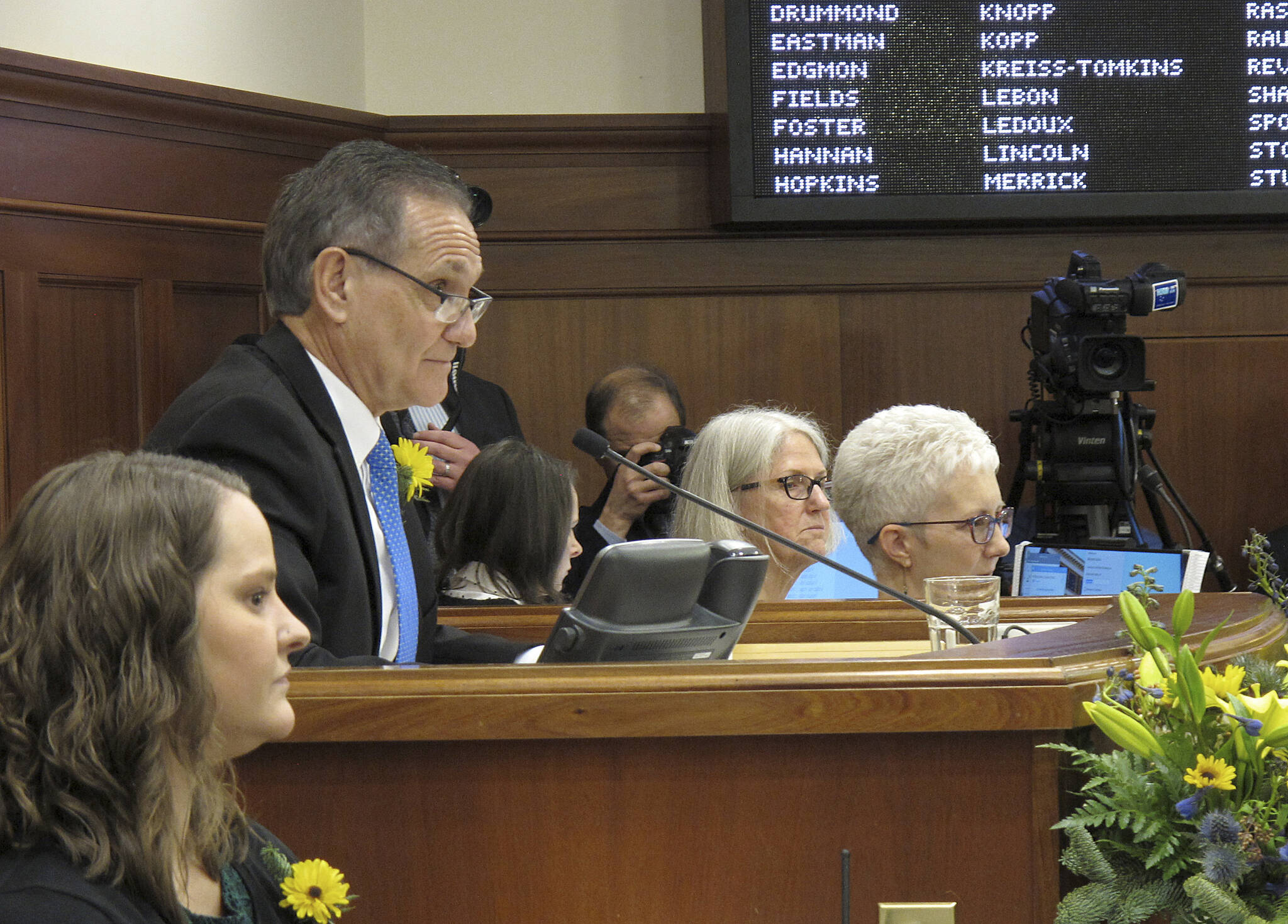By Becky Bohrer
Associated Press
Alaska Lt. Gov. Kevin Meyer last year said the issue his office seemed to be getting the most email on after the 2020 election was the narrow success of a ballot measure that would overhaul Alaska’s election process. His chief of staff said they were getting up to 20 emails a day.
But a records request by The Associated Press yielded fewer than 20 total unique emails that were received by the office with complaints or concerns about the election, and only three mentioned the ballot measure that would end party primaries and institute ranked choice voting in general elections. The emails were recently released, more than a year after the AP first requested them.
Meyer, a Republican who oversees elections in Alaska, in November 2020 announced plans for a hand-count review of votes on the initiative, casting it as a way to calm questions that had been raised about the validity of election results tied to vote tabulation equipment the state uses. The review occurred after the general election results were certified and election officials said it affirmed the measure’s passage.
The hand count cost around $55,750, said Tiffany Montemayor, a Division of Elections spokesperson.
Meyer, in an interview with the AP on Thursday, said his interest in a hand count went back to his race for lieutenant governor in 2018, when he said he was hearing questions about trust in the elections process. Months before the 2020 election, he said he met with a conservative group that had concerns with the tabulation equipment.
He said he didn’t know at the time which race would be involved but that the ballot measure ultimately made sense, given how close the results were and that some questioned how the measure had passed when early, partial votes on election night showed it failing.
[Ballot Measure 2 audit shows no chages]
Certified results showed the ballot measure won with about 50.6% of the vote — 174,032 “yes” votes and 170,251 “no” votes.
“My whole intent here is to try to get as much confidence and trust in elections as possible,” he said. “And if that means doing a … statewide hand count, then we did it. And again, I think some people feel better now but there’s definitely a small group out there that still don’t.”
Meyer’s chief of staff, Josh Applebee, said the emails given to AP provide an “accurate representation” of those received and said at some point, it was hard to separate the ways in which Meyer’s office was being contacted. Asked if they misspoke in November 2020 when they referenced emails specifically and if they had lumped together emails and other forms of contact, he said: “I think that’s probably a better way to look at it.”
He said calls to Meyer’s office and the division were “more aggressive” in tone than the emails and almost reached a point where “we didn’t want to pick up the phone.” He described the month after the November election as “rough.”
Election officials, ahead of the 2020 general election, sought to tamp down expectations about vote tallies released on Election Day, which did not include the large number of absentee and other ballots; officials did not begin counting those until later. Some campaigns and others had encouraged early or absentee voting amid pandemic concerns.
The AP, on Nov. 19, 2020, spoke with Meyer and Applebee about the planned hand-count review and requested emails to and from Meyer between Nov. 10 — when the state began counting absentee ballots — and Nov. 18 concerning the election and ballot measure.
The records provided last week total 138 pages, including emails sent among members of Meyer’s office. The documents include a number of duplicate emails and threads and some pages or sections are redacted.
The writer of one email to Meyer said they “call fraud” on the ballot measure passing, without offering any evidence or explanation. “Alaskans do not want a leftist scheme to ensure leftist wins from here out,” the unsigned email says.
Another person wrote to “demand” a hand count of the initiative results, claiming “zero confidence” in the election results and tabulation machines. Others raised questions about absentee ballots, whether the pen they used to mark their ballot was “legal” and the machines.
Some supporters of former President Donald Trump nationally have sought to sow doubt about the results of the race for president, won by Joe Biden, by attacking Dominion Voting Systems, a widely used voting technology provider in the U.S., whose machines Alaska uses. The company has filed defamation lawsuits over some of the claims that have been made.
Trump carried Alaska in the 2020 general election, and Republicans won the other top-ticket races for U.S. House and Senate. Republicans also won majorities in each the state House and Senate, though the House organized in a way that gave a bipartisan coalition control.
Meyer said Alaska’s election was conducted fairly. If anyone doubts that, he said he encourages them to work an election or be an election observer to see the process in action.
Scott Kendall, a drafter of the ballot initiative and an attorney who has defended the ballot measure, said he “wasn’t offended” that the state hand-counted ballots for that race.
“I do think they were reacting to something,” he said, adding later that he also doubts that many minds were changed by the review.

